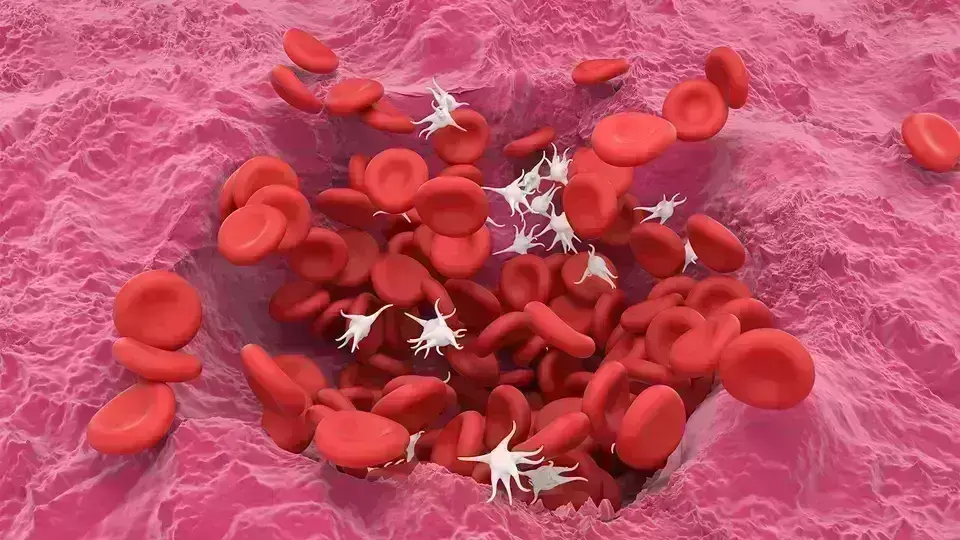- Home
- Medical news & Guidelines
- Anesthesiology
- Cardiology and CTVS
- Critical Care
- Dentistry
- Dermatology
- Diabetes and Endocrinology
- ENT
- Gastroenterology
- Medicine
- Nephrology
- Neurology
- Obstretics-Gynaecology
- Oncology
- Ophthalmology
- Orthopaedics
- Pediatrics-Neonatology
- Psychiatry
- Pulmonology
- Radiology
- Surgery
- Urology
- Laboratory Medicine
- Diet
- Nursing
- Paramedical
- Physiotherapy
- Health news
- Fact Check
- Bone Health Fact Check
- Brain Health Fact Check
- Cancer Related Fact Check
- Child Care Fact Check
- Dental and oral health fact check
- Diabetes and metabolic health fact check
- Diet and Nutrition Fact Check
- Eye and ENT Care Fact Check
- Fitness fact check
- Gut health fact check
- Heart health fact check
- Kidney health fact check
- Medical education fact check
- Men's health fact check
- Respiratory fact check
- Skin and hair care fact check
- Vaccine and Immunization fact check
- Women's health fact check
- AYUSH
- State News
- Andaman and Nicobar Islands
- Andhra Pradesh
- Arunachal Pradesh
- Assam
- Bihar
- Chandigarh
- Chattisgarh
- Dadra and Nagar Haveli
- Daman and Diu
- Delhi
- Goa
- Gujarat
- Haryana
- Himachal Pradesh
- Jammu & Kashmir
- Jharkhand
- Karnataka
- Kerala
- Ladakh
- Lakshadweep
- Madhya Pradesh
- Maharashtra
- Manipur
- Meghalaya
- Mizoram
- Nagaland
- Odisha
- Puducherry
- Punjab
- Rajasthan
- Sikkim
- Tamil Nadu
- Telangana
- Tripura
- Uttar Pradesh
- Uttrakhand
- West Bengal
- Medical Education
- Industry
Concizumab prophylaxis may reduce bleeding in patients of hemophilia A and B with inhibitors

Concizumab prophylaxis may reduce bleeding in patients of hemophilia A and B with inhibitors suggests a new study published in the New England Journal of Medicine.
Concizumab is an anti–tissue factor pathway inhibitor monoclonal antibody designed to achieve hemostasis in all hemophilia types, with subcutaneous administration. A previous trial of concizumab (explorer4) established proof of concept in patients with hemophilia A or B with inhibitors.
Researchers conducted the explorer7 trial to assess the safety and efficacy of concizumab in patients with hemophilia A or B with inhibitors. Patients were randomly assigned in a 1:2 ratio to receive no prophylaxis for at least 24 weeks (group 1) or concizumab prophylaxis for at least 32 weeks (group 2) or were nonrandomly assigned to receive concizumab prophylaxis for at least 24 weeks (groups 3 and 4). After a treatment pause due to nonfatal thromboembolic events in three patients receiving concizumab, including one from the explorer7 trial, concizumab therapy was restarted with a loading dose of 1.0 mg per kilogram of body weight, followed by 0.2 mg per kilogram daily (potentially adjusted on the basis of concizumab plasma concentration as measured at week 4). The primary end-point analysis compared treated spontaneous and traumatic bleeding episodes in group 1 and group 2. Safety, patient-reported outcomes, and pharmacokinetics and pharmacodynamics were also assessed.
RESULTS
Of 133 enrolled patients, 19 were randomly assigned to group 1 and 33 to group 2; the remaining 81 were assigned to groups 3 and 4. The estimated mean annualized bleeding rate in group 1 was 11.8 episodes (95% confidence interval [CI], 7.0 to 19.9), as compared with 1.7 episodes (95% CI, 1.0 to 2.9) in group 2 (rate ratio, 0.14 [95% CI, 0.07 to 0.29]; P<0.001). The overall median annualized bleeding rate for patients receiving concizumab (groups 2, 3, and 4) was 0 episodes. No thromboembolic events were reported after concizumab therapy was restarted. The plasma concentrations of concizumab remained stable over time.
Among patients with hemophilia A or B with inhibitors, the annualized bleeding rate was lower with concizumab prophylaxis than with no prophylaxis.
Reference:
Matsushita T, et al "Phase 3 trial of concizumab in hemophilia with inhibitors" N Engl J Med 2023; DOI: 10.1056/NEJMoa2216455.
Keywords:
Concizumab, prophylaxis, may, reduce, bleeding, patients, hemophilia A, B, inhibitors, NEJM, New England Journal of Medicine
Dr. Shravani Dali has completed her BDS from Pravara institute of medical sciences, loni. Following which she extensively worked in the healthcare sector for 2+ years. She has been actively involved in writing blogs in field of health and wellness. Currently she is pursuing her Masters of public health-health administration from Tata institute of social sciences. She can be contacted at editorial@medicaldialogues.in.
Dr Kamal Kant Kohli-MBBS, DTCD- a chest specialist with more than 30 years of practice and a flair for writing clinical articles, Dr Kamal Kant Kohli joined Medical Dialogues as a Chief Editor of Medical News. Besides writing articles, as an editor, he proofreads and verifies all the medical content published on Medical Dialogues including those coming from journals, studies,medical conferences,guidelines etc. Email: drkohli@medicaldialogues.in. Contact no. 011-43720751


